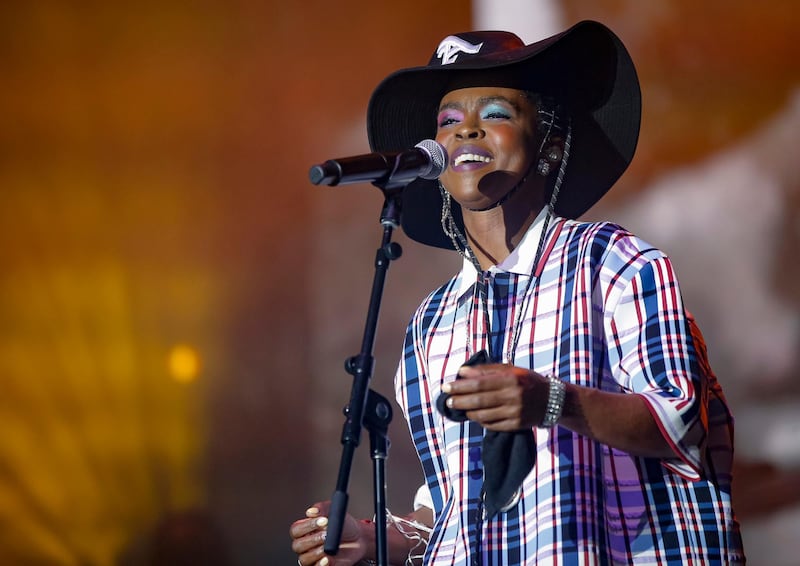Two decades ago, hip-hop was reeling from the deaths of pioneering artists Tupac Shakur in 1996 and The Notorious (Biggie Smalls) BIG a year later. It marked the end of an influential period that had seen the birth of gangster rap, with the music branching out from its East Coast roots to a new legion of artists on the West Coast.
Perhaps as a means of self-preservation, the genre turned inwards by the time 1998 rolled around. Hip-hop's inherent flamboyance, keenly exploited by Tupac and Biggie, were replaced with mostly nihilistic street tales by the likes of DMX (It's Dark and Hell is Hot), Snoop Dogg (Da Game Is to Be Sold, Not to Be Told) and Big Pun with his debut album Capital Punishment. While the notable sales of such albums ensured hip-hop would bounce back from the tragedies of 1996 and 1997, there was an overall aimlessness (with a few exceptions) to the art, augmented by the growing stench of misogyny.
Telling her own story
With the exception of Lil Kim, Foxy Brown and an emerging Eve, noteworthy female rappers were a rare breed, and the material they produced didn't exactly promote female empowerment. It is partly this backdrop that explains why The Miseducation of Lauryn Hill arrived like a thunderbolt 20 years ago this month.
It remains one of the most influential hip-hop albums ever released, but Hill’s debut didn’t herald the sudden arrival of a new star. Instead, the album fulfilled the promise Hill made during her time with The Fugees. Alongside fellow members Wyclef Jean and Pras Michel, the trio were never really comfortable with the hip-hop tag. Due to their Caribbean music influences, The Fugees’ oeuvre was a gumbo of styles, with soul and funk as key ingredients.
With The Fugees breaking up in 1997, their eclecticism and socially conscious outlook can be felt in The Miseducation of Lauryn Hill, released a year later, only this time, Hill was telling her own story. Where The Fugees mostly surveyed the land from a macro level of social justice in song such as Fu-Gee-La and Ready Or Not, Hill's solo work looked at the world from the personal vantage points of a woman, mother, wife and member of a disenfranchised minority – it was a "Wakanda" moment for African American women. Like the blockbuster Black Panther, the power of The Miseducation of Lauryn Hill lay in its aspirational qualities. Unlike most of her peers, Hill wasn't only keen to chronicle life as she saw it. In fact, she was more interested in what we could make of it.
Songs of hope and caution
Hill deployed a laid-back and almost grizzled vibe throughout the album – the songs are an equal mix of hopeful odes and cautionary tales. It opens with a smooth jazzy instrumental, and then Hill arrives with the punchy Lost Ones.
Over a lean production of drums and jutting bass lines, she admonishes a former partner for treating her wrong. But this is no heartbroken lament. Hill is not even angry, she is disappointed about a relationship that she has ultimately outgrown: “It’s funny how money change a situation / Miscommunication lead to complication / My emancipation don’t fit your equation.”
With To Zion, featuring a fine bluesy contribution by the legendary Carlos Santana, Hill movingly discusses the clarity that came with motherhood (the song is dedicated to her son Zion David). Hill's voice quivers as she tells her unborn son of the negativity she felt towards her pregnancy: "I knew his life deserved a chance. But everybody told me to be smart / look at your career," they said "Lauryn baby use your head / But instead I chose to use my heart."
That message is doubled down with the following track, her breakout single Do Wop (That Thing). With its irresistible funk bounce and overall jubilation – not to mention its deft sampling of 5th Dimension's 1971 track Together Let's Find Love – Hill commands our attention with a rapid-fire rap telling women to safeguard their hearts from exploitation: "Girlfriend, let me break it down for you again / You know I only say it cause I'm truly genuine / Don't be a hard rock when you really are a gem / Baby girl, respect is just a minimum."
Independence, whether emotional, creative or personal, is a topic Hill returns to often in the album. In Superstar, she seems to be interrogating herself about the nature of fame and how it can erode creativity: "Now tell me your philosophy / On exactly what an artist should be / Should they be someone with prosperity and no concept of reality?"
In the sultry R&B of When it Hurts So Bad, Hill learns that growth comes with letting go: "What you need might pass you by if you don't catch it / And what you need ironically will turn out what you want to be. If you just let it."
It's only in the last third of the album that Hill moves away from introspection to examine life around her. The album's highlight, Everything is Everything, is a searing examination of the struggles of disenfranchised African-American communities.
In it, Hill addresses the aggrieved with a plea for self-empowerment. In a mixture of singing and rapping, she describes how African-Americans come from an ancient and influential heritage of leadership ranging from Egyptian queens Cleopatra and Nefertiti to civil rights activist Betty EL Shabazz. And she uses this to drive home the message of empowerment: “Let’s love ourselves and we can’t fail to make a better tomorrow / our seeds will grow / All we need is dedication. Let me tell you that.”
The cinematic production matches the depth of the message with strings and lush orchestration, in addition to a tough back beat.
Creative rut or miracle?
The Miseducation of Lauryn Hill was rightfully viewed by the critics as a tour de force. In addition to breaking the American record for first-week sales by a female artist, it went on to win five Grammy Awards, including the much-coveted Album of the Year.
On the music front, the record expanded the hip-hop palette to fully embrace reggae, soul and funk, and with 20 million sales it forced hip-hop critics and music industry executives to reappraise what female artists can contribute.
The fact that Hill hasn’t released a follow-up gives the album an enigmatic quality. Despite the clamour for new material, she has been diligently touring the same songs ever since. Indeed, next month she will embark on a world tour celebrating its 20th anniversary.
Whether her creative tank is permanently dry or The Miseducation of Lauryn Hill is viewed as a brilliant freak accident is besides the point. It is the universal message of self-improvement and independence embodied within the songs that is responsible for this album's enduring legacy.
And perhaps for Hill, that’s all she wanted to say.
____________________
Read more:
[ Inspired by the Black Lives Matter movement, singers use music to make their voices heard ]
[ French pop star Jain's ode to Abu Dhabi: 'The song is my homage to the city' ]
[ Why 1993 was the year that changed music forever ]
Give it a listen: 10 bold and unlikely musical collaborations
____________________






